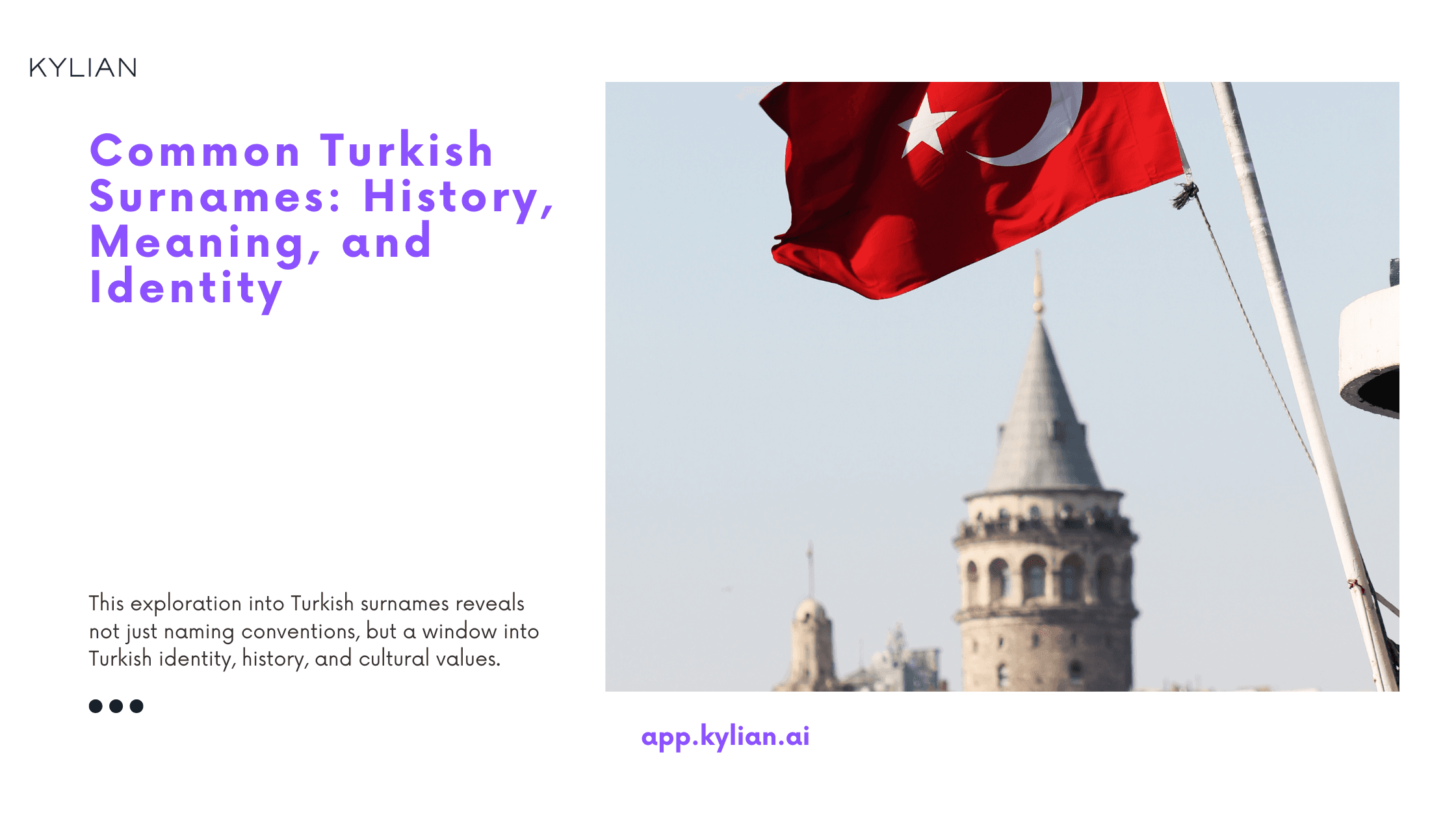

Common Turkish Surnames: History, Meaning, and Identity
Turkish surnames represent a fascinating intersection of history, culture, and linguistic evolution. Unlike many Western nations where surnames evolved organically over centuries, Turkish surnames have a unique origin story tied directly to the country's modernization efforts. This exploration into Turkish surnames reveals not just naming conventions, but a window into Turkish identity, history, and cultural values.
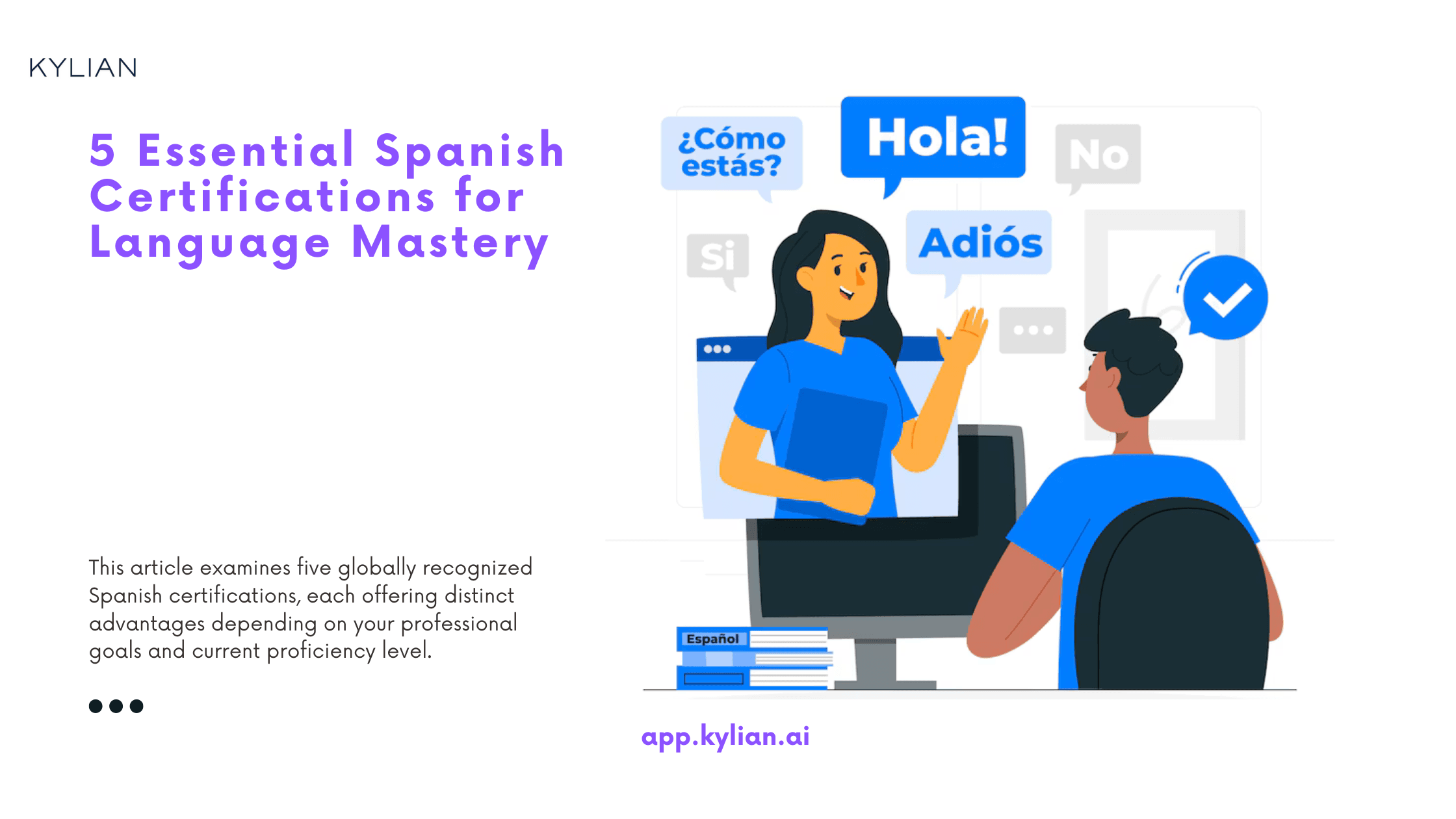

5 Essential Spanish Certifications for Language Mastery
Acquiring a Spanish language certification serves as tangible proof of your linguistic capabilities, creating pathways to academic advancement, career opportunities, and even citizenship in Spanish-speaking countries. Rather than merely claiming proficiency, these internationally recognized credentials validate your skills according to standardized frameworks. For those seeking Spanish citizenship, pursuing higher education, or working in Spanish-speaking environments, demonstrating language competency through official certification has become increasingly essential. This article examines five globally recognized Spanish certifications, each offering distinct advantages depending on your professional goals and current proficiency level. Before exploring specific certification options, let's establish a foundation by understanding the Common European Framework of Reference for Languages (CEFR) – the standardized system that quantifies language ability from beginner to mastery level.
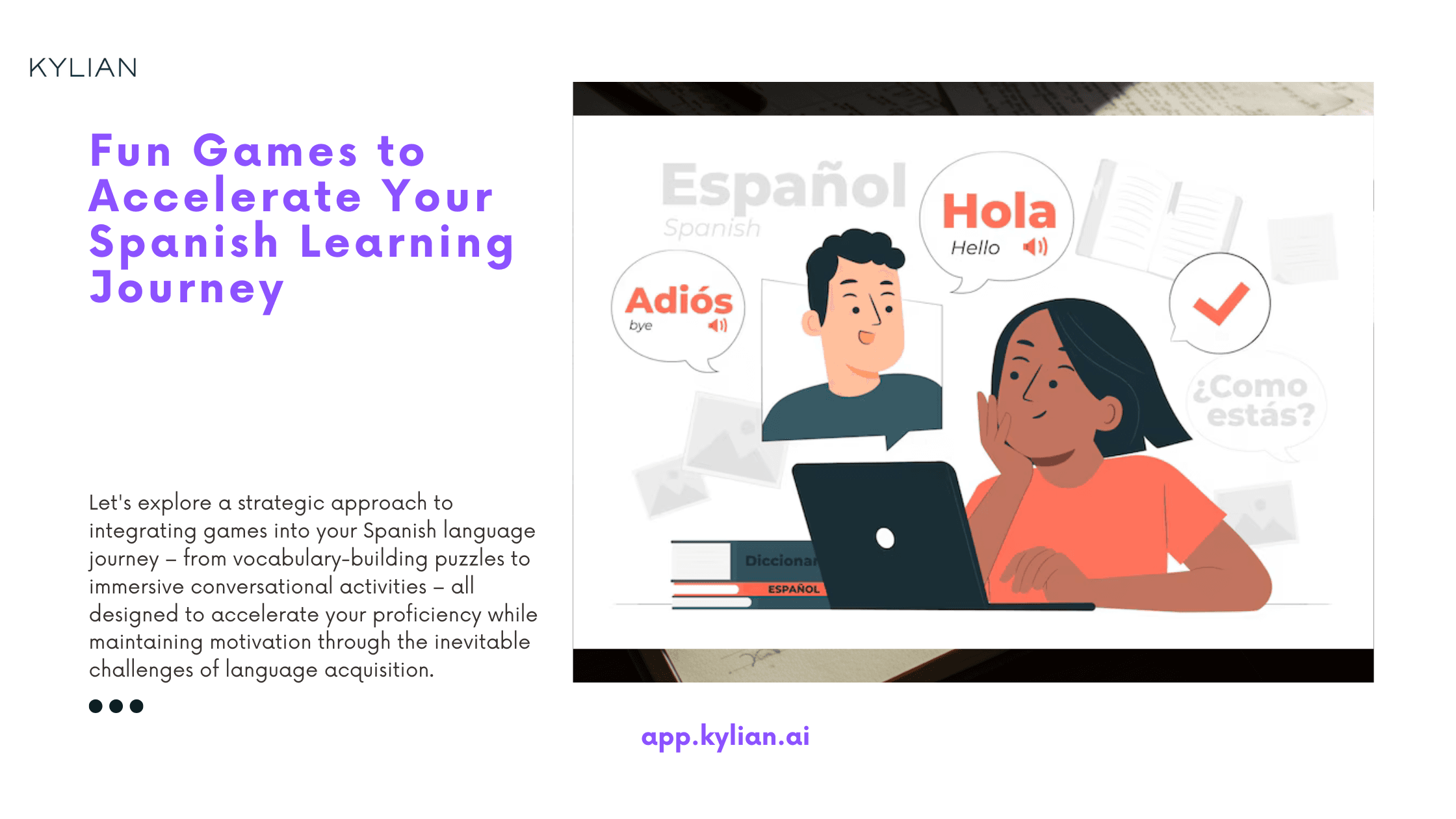

Fun Games to Accelerate Your Spanish Learning Journey
Learning Spanish becomes genuinely enjoyable when gamification enters the equation. Rather than viewing language acquisition as a mundane task, interactive games transform the experience into an engaging adventure that reinforces vocabulary, grammar, and conversation skills naturally. The evidence is clear: when learning feels like play, retention increases dramatically. Let's explore a strategic approach to integrating games into your Spanish language journey – from vocabulary-building puzzles to immersive conversational activities – all designed to accelerate your proficiency while maintaining motivation through the inevitable challenges of language acquisition.


Tagalog Speakers Worldwide: The Numbers and Impact
Tagalog serves as the linguistic backbone connecting millions across the globe to Filipino culture, heritage, and identity. Beyond being merely a communication tool, it represents the collective voice of a nation and its diaspora. Understanding its reach reveals not just numbers, but the story of migration, cultural preservation, and linguistic evolution in our increasingly connected society.
![The Plural of Thesis: Complete Analysis [English]](/_next/image?url=https%3A%2F%2Fcdn.sanity.io%2Fimages%2F147z5m2d%2Fproduction%2Fd4328076decb39fb6472692930512cb8817ab397-2240x1260.png&w=3840&q=75)

The Plural of Thesis: Complete Analysis [English]
Academic writing demands precision—not just in ideas but in linguistic construction. The plural form of "thesis" presents a specific challenge for writers navigating scholarly discourse. Understanding this nuance matters because imprecise terminology undermines credibility in academic contexts where language clarity carries significant weight. Why does this grammatical point warrant attention now? As academic publishing continues to globalize and digital repositories make research more accessible, more non-native English speakers engage with thesis writing than ever before. The correct pluralization becomes a marker of linguistic competence and affects how scholarly work is received by peers, reviewers, and citation indices. This analysis explores the correct pluralization of "thesis," examines its etymological roots, outlines usage guidelines, and provides practical applications across different contexts.


Common Swedish Surnames: History, Meanings and Usage
Swedish surnames carry centuries of Nordic history within their syllables. These family names represent a linguistic roadmap through Sweden's cultural evolution, from ancient patronymic traditions to modern naming conventions. Understanding Swedish surnames unlocks insights into Scandinavian heritage, migration patterns, and social structures that have shaped Sweden's identity. As global interest in genealogy and heritage exploration intensifies, Swedish surnames have attracted particular attention for their systematic formation patterns and historical significance. These names don't merely identify families—they tell stories of ancestral professions, geographical origins, and societal transformations that have occurred across generations.


"My Friend and I" vs "Me" in English: The Ultimate Guide
Grammar rules often serve as the foundation of effective communication, yet some of these rules continue to challenge even proficient English speakers. The confusion between "my friend and I" versus "my friend and me" represents one of these persistent grammatical stumbling blocks. The misuse of these pronouns appears in everyday conversations, professional emails, and even academic writing—indicating a widespread uncertainty that transcends proficiency levels. Why does this matter? Because precision in language demonstrates credibility, attention to detail, and respect for your audience. While some might dismiss this as grammatical nitpicking, the reality is that pronoun usage fundamentally shapes how we position ourselves in relation to others in our communication. This comprehensive guide will equip you with the knowledge to confidently navigate the "I" versus "me" dilemma, offering clear explanations, practical examples, and straightforward methods to determine the correct choice in any context.


The Past Tense of Ski in English: A Comprehensive Guide
The English language presents numerous challenges when it comes to verb conjugation, particularly with verbs that don't follow standard patterns. The verb "ski" is one such example that often creates confusion for language learners and sometimes even native speakers. This comprehensive analysis explores the correct past tense forms of "ski," the grammatical rules governing its usage, and practical examples to enhance your understanding. Understanding how to correctly conjugate "ski" in the past tense isn't merely an academic exercise—it's essential for clear communication, especially when recounting winter adventures or discussing winter sports. Whether you're writing an email about your recent vacation, composing a sports article, or simply engaging in conversation about winter activities, knowing the correct form enhances your language precision.


Biff Slang in English: Definition and Cultural Context
Language continuously evolves, reflecting societal shifts and cultural phenomena. Among the numerous colloquialisms that have entered modern English vocabulary, "biff" stands out as a particularly versatile slang term with multiple interpretations and applications across different English-speaking communities.


Gift-Giving Etiquette in English: The Complete Guide
Exchanging gifts represents one of the most universal human customs across cultures, yet the linguistic nuances surrounding this practice vary significantly. For English language learners, mastering the vocabulary and expressions associated with gift-giving creates meaningful social connections and prevents potential misunderstandings in personal and professional settings. This guide addresses a practical challenge many English learners face: how to navigate gift exchanges with confidence and cultural awareness. Beyond just vocabulary, understanding the contextual differences between terms like "gift" and "present" and knowing appropriate phrases for offering and receiving items demonstrates cultural fluency that transcends basic language proficiency.


It's Been vs. It Has Been: The Usage Guide
Language precision significantly impacts communication effectiveness. The seemingly minor distinction between "it's been" and "it has been" reveals deeper grammatical principles that enhance writing clarity. This comprehensive analysis delves into their appropriate usage contexts, grammatical foundations, and practical applications.


Top 12 Online Business English Courses to Boost Your Career
Mastering business English is no longer optional for professionals with global ambitions. As the lingua franca of international commerce across more than 70 countries, English proficiency directly impacts career trajectory, compensation, and opportunities. For busy professionals balancing work demands with development goals, online business English courses offer strategic pathways to linguistic competence. These programs deliver specialized vocabulary, contextual communication skills, and industry-specific language that general English courses simply don't address. This analysis examines the 12 most effective online business English courses available in 2025, evaluating their methodologies, cost structures, time commitments, and specific use cases to help you identify the optimal learning solution for your career objectives.


Hall's Cultural Dimensions: Cross-Cultural Business Guide
Successful global business operations require more than just linguistic proficiency. They demand a nuanced understanding of cultural frameworks that shape how people communicate, collaborate, and negotiate. Edward T. Hall, a pioneering anthropologist, developed cultural dimensions that provide essential insights for navigating cross-cultural business environments.


Master French Weather Terms: Practical Guide for Beginners
Weather conversations represent one of the most fundamental interaction points in any language. They serve as natural icebreakers, provide contextual relevance to daily activities, and offer beginners a practical entry point into meaningful dialogue. For French language learners, mastering weather vocabulary delivers immediate practical value - enabling authentic conversations from day one. Understanding French weather terminology transcends mere vocabulary memorization - it opens cultural doors and creates genuine connection opportunities. Let's explore the essential elements of discussing la météo in French, from basic expressions to nuanced idioms that will elevate your conversational abilities.


What is the Meaning of "That's Cap" in English?
Contemporary language evolves continuously, with new expressions emerging and spreading through social channels at unprecedented speeds. Among these linguistic innovations, the phrase "that's cap" has gained significant traction, particularly within online communities and youth culture. Understanding this expression not only helps non-native speakers navigate casual conversations but also provides insight into how modern English adapts to cultural shifts.


What is the meaning of "don't tempt me"?
The expression "don't tempt me" represents a fascinating intersection of desire, restraint, and social communication. When someone says "don't tempt me," they're communicating a complex internal struggle—they're acknowledging an attraction to something while simultaneously trying to exercise self-control. This phrase has embedded itself in English conversational patterns as a playful yet meaningful way to navigate temptation.


German Language Levels: A Comprehensive Guide from A1 to C2
Understanding German proficiency levels gives language learners clarity about their progress, helps establish concrete goals, and provides tangible benchmarks that employers and educational institutions recognize. This comprehensive guide explains the six CEFR levels for German, offers practical examples, and clarifies what level you'll need to achieve your specific goals.
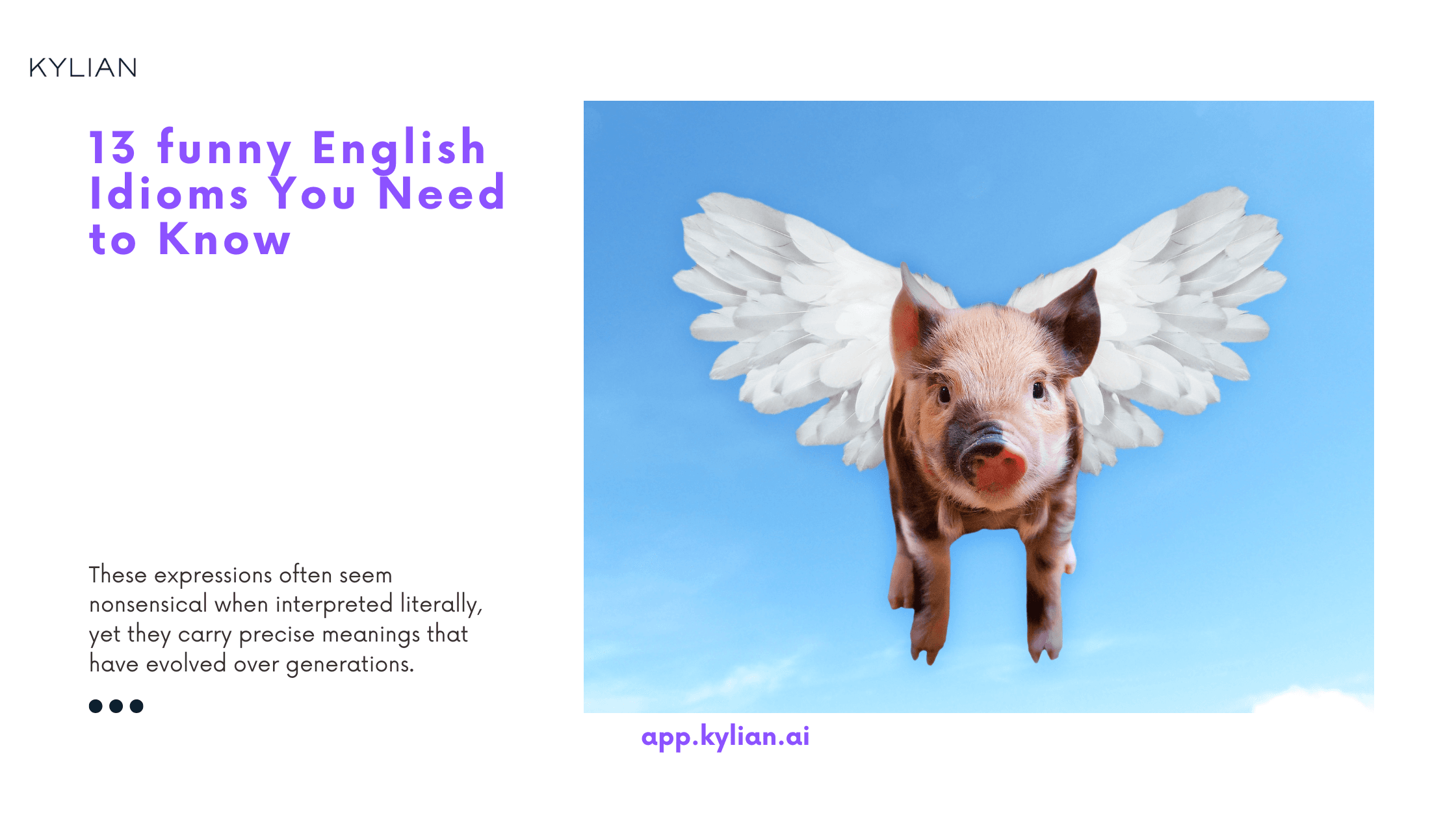

13 funny English Idioms You Need to Know
Language acquisition goes beyond memorizing vocabulary and grammar rules. The true essence of linguistic mastery lies in understanding the cultural nuances and expressions that native speakers use effortlessly. English idioms represent a fascinating linguistic phenomenon that often challenges learners with their unpredictable meanings and humorous imagery. Funny idioms particularly stand out in the English language because they capture cultural humor while providing insights into how English speakers conceptualize the world. These expressions often seem nonsensical when interpreted literally, yet they carry precise meanings that have evolved over generations.
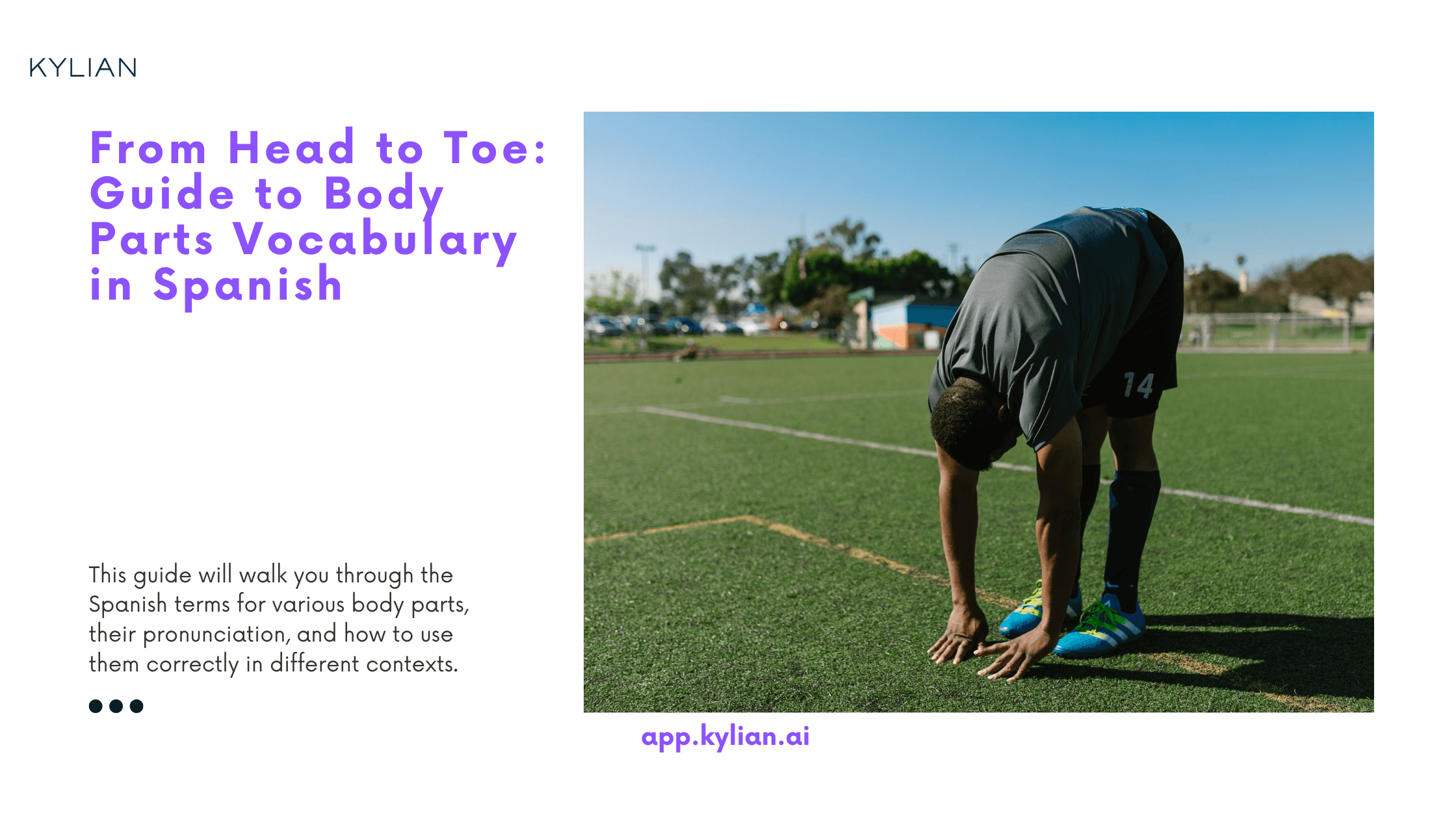

From Head to Toe: Guide to Body Parts Vocabulary in Spanish
Confusing your cadera (hip) with your codo (elbow)? No need to worry—this comprehensive vocabulary guide offers you a mano amiga (helping hand). Whether you're engaging in a friendly soccer match in Barcelona or dancing salsa in Bogotá, mastering body parts in Spanish will ensure your conversations flow smoothly. Understanding the anatomical vocabulary in Spanish proves invaluable for travelers, language learners, and anyone seeking to deepen their cultural connections in Spanish-speaking regions. Body language and cultural expressions rely heavily on referencing body parts, making this vocabulary essential for even beginner Spanish speakers. This guide will walk you through the Spanish terms for various body parts, their pronunciation, and how to use them correctly in different contexts.


French Adjectives: Describing People, Objects and Places
Learning a language requires mastery of its descriptive elements. French adjectives form the backbone of expression, allowing learners to communicate with precision and nuance. Understanding how to properly use French adjectives transforms basic communication into rich, detailed conversation.


Syllable Study: Mapping the Fastest Rappers Across Languages
Hip-hop has evolved from its Bronx origins into a global phenomenon, with artists around the world pushing the boundaries of lyrical dexterity. One particularly impressive aspect of rap is the speed at which artists can deliver complex lyrics while maintaining coherence, flow, and artistic quality. Our comprehensive analysis examined 1,000 artists across various languages to determine who can pack the most syllables into their tracks, offering a unique perspective on the technical skill and linguistic adaptability of rap as an art form.
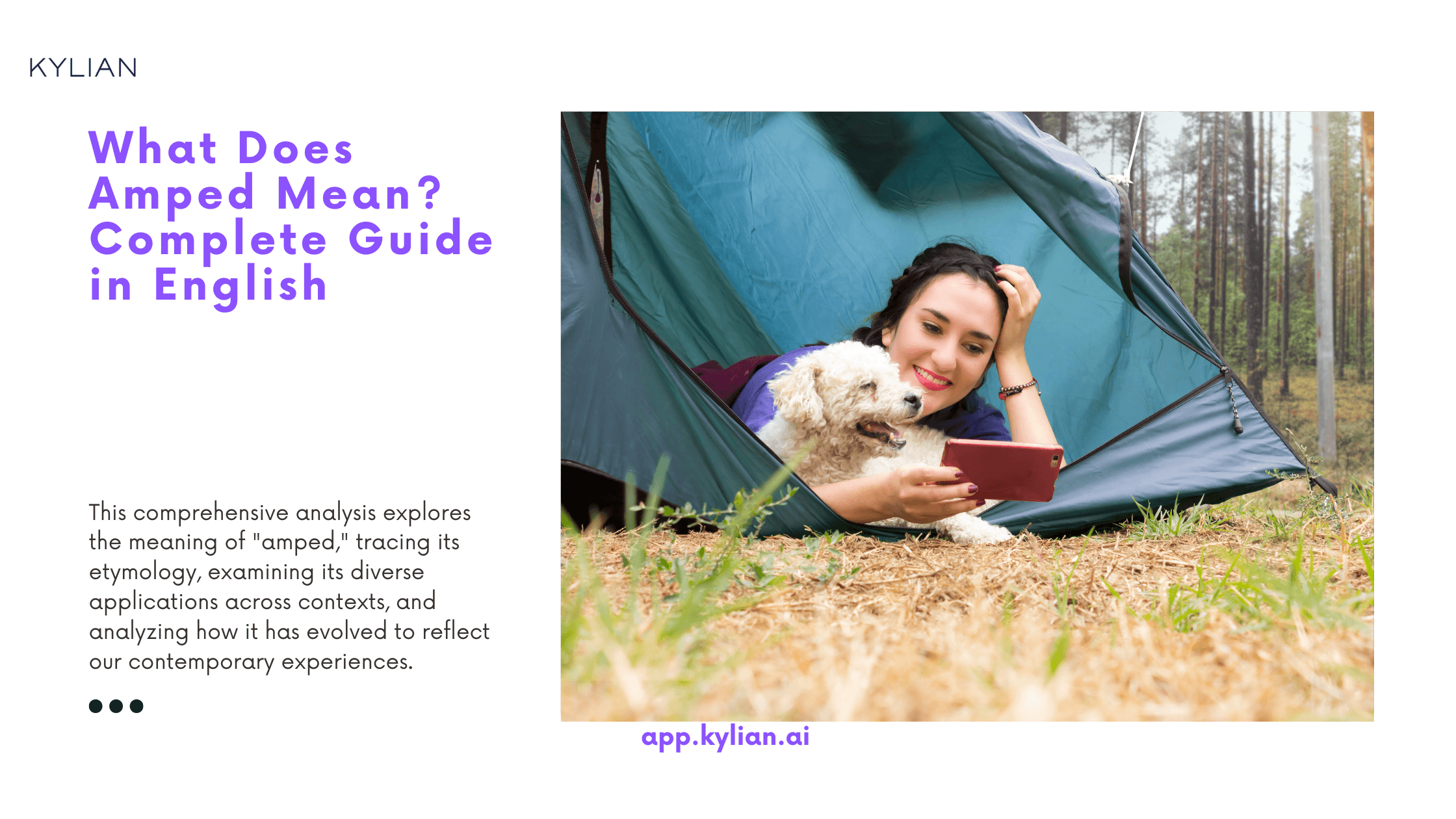

What Does Amped Mean? Complete Guide in English
The evolution of language reflects our society's constant transformation. Few words exemplify this evolution better than "amped" – a term that has transcended its original technical context to become embedded in our everyday vernacular. Understanding what "amped" means provides insight not only into linguistic development but also into how culture shapes communication. This comprehensive analysis explores the meaning of "amped," tracing its etymology, examining its diverse applications across contexts, and analyzing how it has evolved to reflect our contemporary experiences. By dissecting this term, we gain valuable perspective on how language adapts to serve our communicative needs.


Is it inclusive to address a group as "guys" in English?
Communication evolves constantly, pushing us to examine language choices that once seemed trivial. The casual use of "guys" as a group address raises important questions about inclusivity in professional and social settings. This critical examination reflects broader shifts in how we navigate gender-neutral communication in English.


Past Tense of Tear in English: Complete Guide
The English language presents numerous challenges for learners and native speakers alike, particularly when it comes to irregular verb forms. Among these, the verb "tear" stands out as a source of confusion due to its multiple meanings and forms. This comprehensive guide examines the past tense forms of "tear," providing clarity on its correct usage, common mistakes, and practical examples to enhance your understanding.